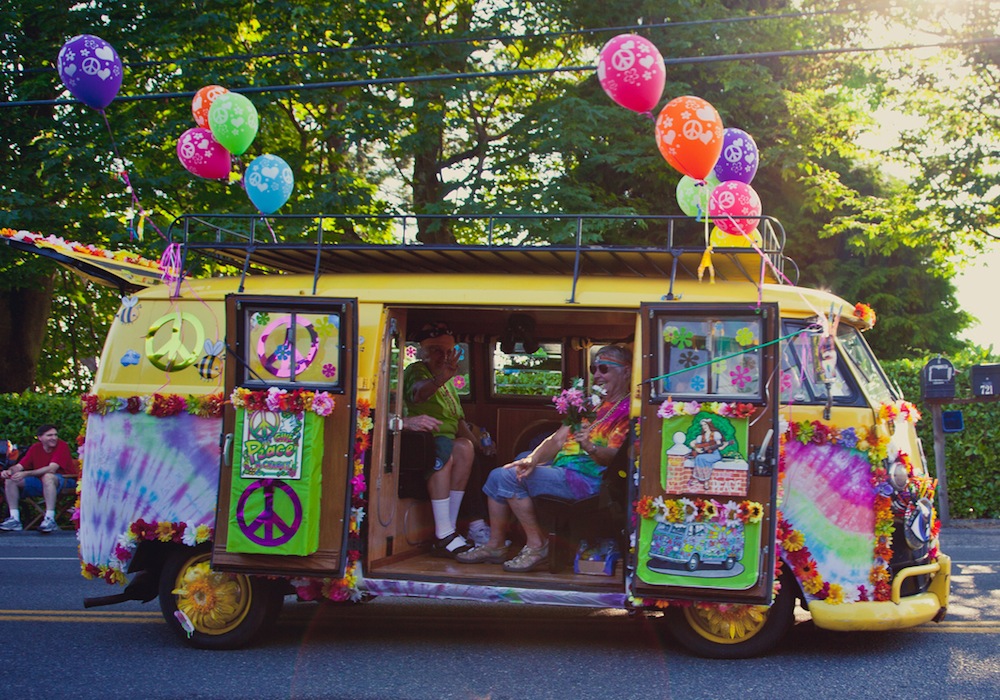
I’m not a hippie. I don’t have dreadlocks. I smell just fine. I don’t smoke pot. I don’t even call anyone “man.” But man, I love hippies.
I owe the way I live my life to hippies. For lunch today, I went across the street and bought a sandwich with locally sourced chicken, avocado, and arugula. This weekend, as I do every weekend, I’ll get up early and head over to the farmers market, where I’ll wait in long lines without complaint. What I can’t find there, I’ll pick up at my local co-op. And I’ll pass three different bike shops on my way over.
I live in Takoma Park, Maryland, proudly known to its residents as “The People’s Republic of Takoma Park.” Back in the 1960s, hippies made Takoma Park what it is when their activism helped to establish the city as a nuclear-free zone (it still is, though nuclear power operators have never expressed the slightest interest in Takoma Park). We don’t do McDonalds in Takoma Park. We don’t tolerate Target or Ann Taylor. Everything we have is ours, and we’re proud of that.
Without hippies, Takoma Park might resemble many other American suburbs, where you find off-white, sprawling housing developments, a Walmart next to the Best Buy, some glass-enclosed office buildings, and an Applebee’s (where, contrary to their slogan, you do not belong—and I would never insinuate that you somehow “belong” at a mediocre chain restaurant).
Takoma Park is hardly alone in eschewing The Man thanks to a trail blazed by hippies. The best and biggest example of hippie influence in the United States is probably Portland, Oregon. I visited Portland a few months ago and was thrilled to discover a massive version of Takoma Park. I saw no familiar brands anywhere, bikes were apparently the primary mode of transport, and it seemed like it would be difficult to find food that wasn’t organic and sustainable. In a world that’s becoming increasingly commercial and consolidated by corporations, it’s empowering to see that we, the people, can still make our own way.
In essence, that’s what it means to be a hippie. It means rejecting the dominant culture, which, thankfully for people like me, has become more commonplace. We have Whole Foods grocery stores all over the country now, the concept of which would have been inconceivable 20 years ago. In fact, Whole Foods itself has become dominant enough to face counterculture rejection. Restaurants proudly tout their organic or locally sourced food. Even in terms of technology, it’s already entirely feasible to abandon Microsoft and Apple products completely in favor of Linux, which is a “by the people” operating system.
I find this amazing and wonderful. My parents didn’t have these sorts of options when I was growing up in the 1980s, the decade when commercial interests arguably took over. But thanks to hippies, I can remain unswayed by The Man, free to make my own decisions about what I create, consume, and support.
So to the hippies: My friends, I may not smoke with you, but I will gladly walk in your smoke.




Send A Letter To the Editors